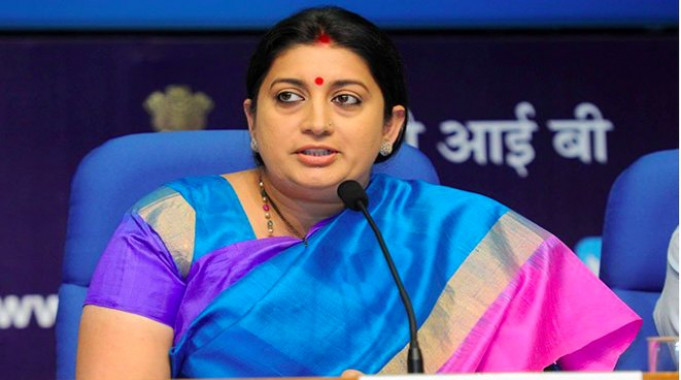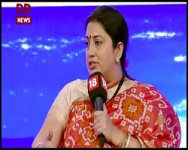Online regulation: another hasty move?
The Ministry of Information and Broadcasting under Smriti Irani means business as we have seen by now, however arbitrarily and patchily. Two weeks after she floated the idea of regulation for online media at News18’s Rising India Summit, her ministry apparently issued an order dated April 4 constituting a committee to suggest a regulatory framework for online media news portals and entertainment sites, as well as news aggregators. Presumably platforms such as YouTube will also part of this amorphous territory.
(We say apparently, because this is not an order you will find on the Press Information Bureau’s website. It has issued no press release in this regard. It is an official looking and sounding diktat that is circulating via WhatsApp and now through the media coverage that has followed. Strange way for a government to function, unless it is a way of testing the waters.)
Six members of the committee have been drawn from government, including five secretaries and one CEO. Secretaries from the ministries of information and broadcasting, electronics and information technology and home affairs, as well as secretaries from the departments of legal affairs and industrial policy and promotion will be appointed to the committee.
It will also include the chief executive officer of the government’s citizen engagement platform MyGov and representatives from the Press Council of India, News Broadcasters Association and Indian Broadcasters Federation.
How about representation from those who actually run online media, and from Indian representatives of technology companies who control these platforms, to bring both clarity and realism to the bureaucracy’s endeavours? What about the telecom sector which will deliver online media through broadband in greater volume than the Internet, in India? Such representation does not seem to have been contemplated.
When a government sets out to contemplate regulation for a wide swathe of the online media universe, alarm bells will ring. The Internet came to India in 1995, it has ruled our lives for many years now and its dominance can only grow. That is 23 years of living with the beast and the many manifestations it has spawned without any regulation from government. Either here on in democratic societies abroad. Do we then really need to be urgently rescued from it by Smriti Irani and the ministry she heads?
However one way to handle the development with some equanimity is to recognize that government regulation in the media realm in India has changed precious little on the ground. The Press Council has no teeth, and has little influence, however much the government chooses to stack it with members of its choice. Television has regulation by way of a content code in the Cable TV act, as well as two self regulatory bodies, the Indian Broadcasters Federation and the News Broadcasters Standards Authority. The advertising industry is also regulated by a self regulatory body. With all of this in place television channels, both news and entertainment, run cheerfully amuck all the time. Sometimes they respond to self regulation, sometimes they completely ignore it.
There is policy, and there is regulation. Both need a thoughtful approach. Some of what the committee that has been set up will have to tackle are policy issues, such as the rules governing foreign direct investment in the online space. The MIB has reportedly received applications for foreign investment in digital media platforms. Foreign investment is already coming into online news media, Scroll.in and Newslaundry being examples. Limits have not been set for this sector so perhaps the intention is to do that.
Regulating the online space invites apprehension because of the sentiments Ms Irani has expressed at various fora, objecting to news that incorporate views. The issues entrusted to this committee run the gamut from policy on FDI for this space, to the need for separation of news from views, and presumably the universe of fake news as well.
Conceptual clarity, at the very least, would be vital for such an endeavour. A ministry of information and broadcasting need not be paranoid about views in news. Given a clearly demarcated separation between the two, comment is a vital part of the news industry. Mature democracies and their lawmakers are surely expected to recognize that?
This is like the sudden diktat on fake news and accredited media.
The response of the online news industry should be both mature and vigilant. Ask for representation of the online news industry on the committee. After the recent withdrawal at the PMO’s instance of the attempt to use fake news charges to withdraw accreditation , there has been a bit of euphoria about the imagined snubbing of Ms Irani by the PMO. But if she felt chastised she would not bounce back with this committee in no time at all. The move must have wider government support. As this website has pointed out, it is possible that the state has turned its attention to this part of the news landscape as it is almost the last bastion left that speaks truth to power.
The BJP when in government in the past has contributed to the opening up of media to the private and non governmental sector. Between them Sushma Swaraj and Arun Jaitley as information ministers presided over policies which permitted community radio, opened up FM radio to the private sector, and permitted foreign direct investment in print media. All this between 2001 and 2004.
PM Modi and Smriti Irani then need to tread wisely if their legacy is not to be a hasty one which does more damage than good.








